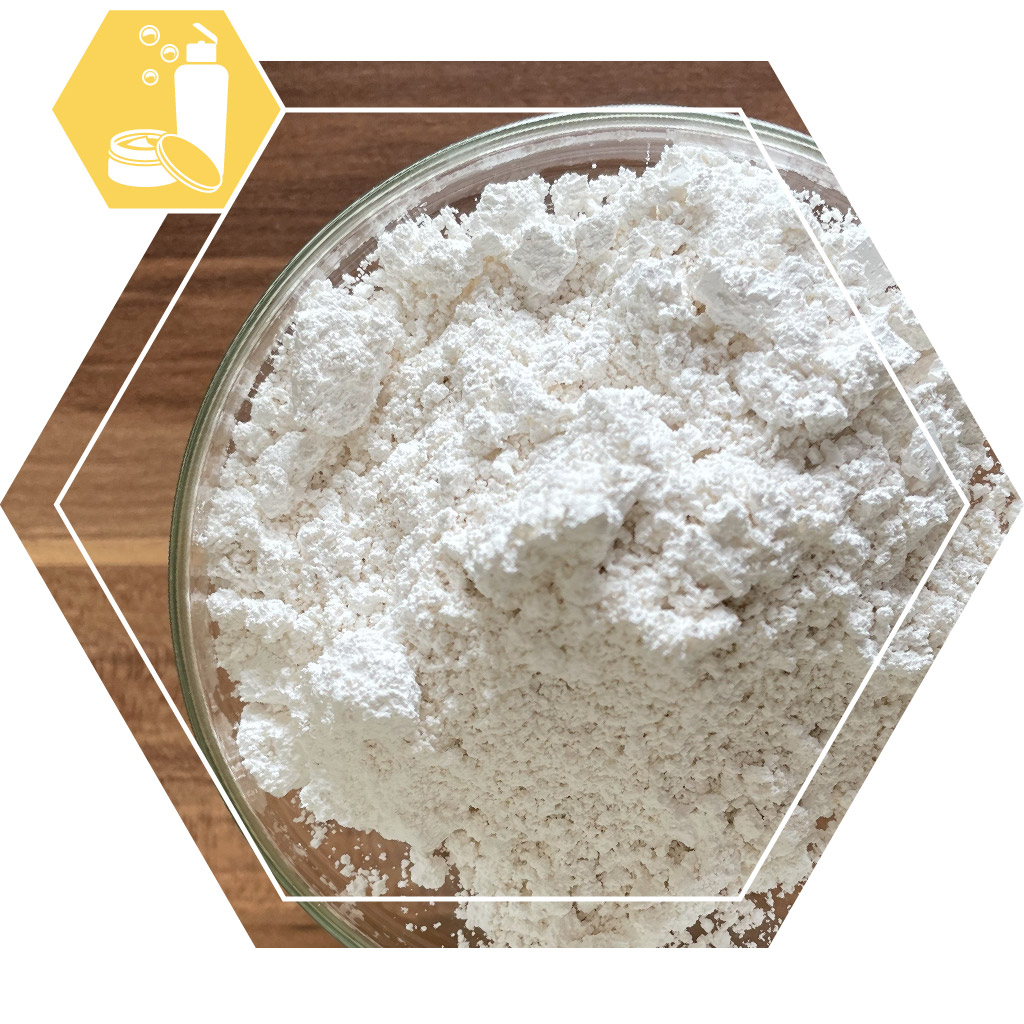Cosmetics raw material
Description
This text has been automatically translated and may contain errors.
Calcium carbonate is an active ingredient for use in cosmetics. It is an abrasive for toothpaste.
Use
Calcium carbonate, or chalk, is mixed with the other components of a toothpaste. Follow a good recipe if possible, but otherwise: as much as needed, usually 10-30% in the finished product.
We mainly sell calcium carbonate for making toothpaste for educational use. Our advice is not to use the toothpaste or to use it only once, on the day it is made. This is for two reasons.
The first reason is that toothpaste is not just cosmetics. It's not just there to promote beauty, a good use of a good toothpaste is to maintain healthy teeth. This requires some form of fluoride. However, fluorides in pure form are far too dangerous to work with and the dosage in toothpaste is also quite precise. Too high a dose can damage the teeth, too low will not work.
The second reason is that the oral cavity is less well protected against, for example, micro-organisms than the skin. If you use insufficiently preserved cream once, this is usually not a big problem. Poorly made toothpaste can also mold and ferment over time, which can make you sick. Freshly made, that doesn't play a big role.
Occasionally it is used as white pigment. It is not very suitable for that because it covers poorly.
Of course, calcium carbonate is also a suitable substance for chemical experiments or for technical uses.
De Hekserij does not sell products intended for use in foodstuffs or for other internal use, this product is no exception.
Properties
Calcium carbonate is a white, powdery substance. It has a very long shelf life, if kept dry and well packaged. The quality we sell is especially suitable for use in toothpaste. It is clean enough for that. Calcium carbonate is hard enough to help polish many types of plaque, but does not damage tooth enamel.
It meets the requirements for use as a pigment in cosmetics, but because it covers poorly, it is used little for that.
Sustainability
Calcium carbonate is made from chalk extracted in mines or quarries. It takes millions of years for a layer of calcium carbonate to form. It is therefore not a renewable raw material: eventually all quarries and mines will be exhausted. Grooves affect the landscape. Nevertheless, calcium carbonate is usually considered sustainable, which in turn indicates that this is sometimes more a matter of feeling than a matter of fact. On the other hand: it can do no harm in the environment, is not toxic. It breaks down badly, but that is not a problem, it occurs naturally in many types of soil and water.
Packaging
The small packages are made of white plastic (PP or PE) pots or buckets with a lid. The 5 kg packaging consists of transparent plastic (LDPE) bags.
Dangers
Calcium carbonate is not a hazardous substance. Nevertheless, we recommend to store all raw materials carefully: out of the reach of children.
Codes
Item number: 13007
English name: Calcium carbonate
EC number: 207-439-9
CAS Number EU: 471-34-1
INCI: CALCIUM CARBONATE




